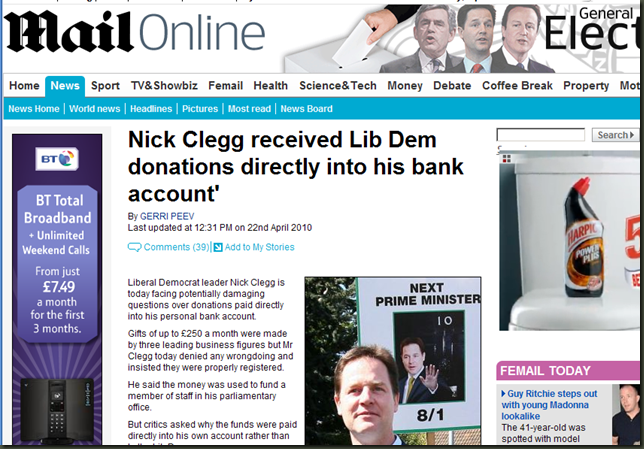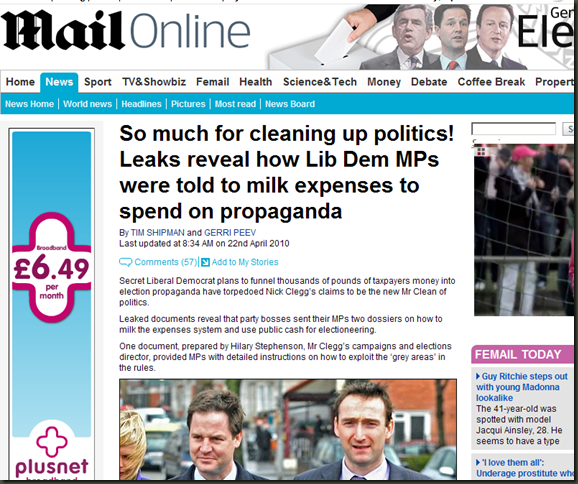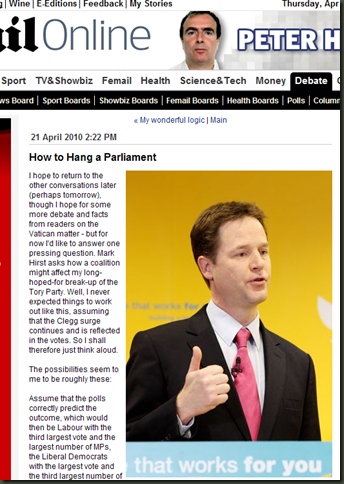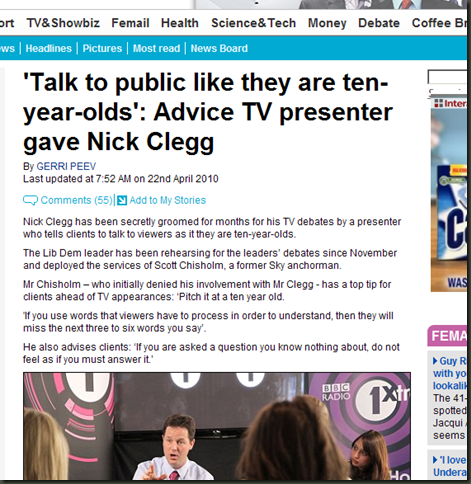Part 1 Listening to digital music
I have this theory. In fact I have lots of theories. But for the rest of this paragraph I will restrain myself to blessing you with just one. My theory is that we are all moving to digital music before we are ready for it.
I mean listening to it on an iphone/ipad thing, sure fine. We’re all doing that ok. But in the house? or in the car? How do you listen to it there?
I quite often hear people talk about how they put their CDs in the loft, or never buy real CDs anymore. Yeah, why bother with that crazy shit?! And the news which reminded me of this today was that Amazon will allow you to download (and keep in the Cloud) any physical album you buy.
Now, when I do buy music (which is less now, as the rules of being a grown state you buy less music), when I do buy music, I do still tend to buy a CD. Even though the first thing I will do is rip it.
Why? Because, for some odd, unexplainable, stupid, economic-defying reason it is still cheaper, to pay for something to be designed, made, put together, boxed up, shipped to a warehouse, stored, picked from the warehouse, shipped to a Store, unboxed and put on a shelf, have people decide on how it will look in that store, and have people on hand to offer advice, someone to take payment, pay expensive rent on said store, and factor in shrinkage, THAN PUTTING A BLOODY 5MB FILE ONLINE TO DOWNLOAD.
This is crazy.
I said CDs are often cheaper than MP3s, as a quick test by looking on Amazon for Madonna (YOU SEE I AM DOWN WITH THE KIDS). Of the nine albums shown: five are cheaper on CD, three are only available on CD and one, just ONE, is cheaper by downloading MP3s. iTunes seems little better.

My buying process goes something like this: like a song on Spotify. Decide to buy it (especially as I don’t subscribe and can often only listen 5 times). Decide that I like more than 4 or so songs from the album, at which point, at 99p per song it is only a little more to buy the whole album. Check the album on Amazon both to download and buy, often the physical album is cheaper and that’s what I’ll buy.
I will then have it on my computer and iPhone (at a bit rate of my choosing – I am a geek) plus have a backup physical copy – which comes in a nice presentation box with photos – that I can also use in the Hi-Fi, lend to a friend and play in a car. Those extras there are pretty handy, and worth getting the CD even if it is a little more than the download only version. Plus, PLUS they can’t do a Amazon-Kindle-look-at-us-while-we-delete-an-ebook-from-your-kindle-which-you-previously-purchased. Not with my physical copy they can’t.
But, even with these physical things sitting very very close to my as I type this, I still play mostly via my laptop. The thing is, they do skip, and worse, I have to stand up and walk a whole meter and find a cd, and put it in the player, and then after a while it will get to the song I don’t care for much and have to get up again and press skip. I know! And then 15 mins into the album my attention span will be all used up and I’ll want to instantly change to a completely different song which probably isn’t on any CD I own, let alone the one I’m playing. Is there no end to the grind?
That’s not to say CDs don’t have advantages. For one they are better quality (no compression, dedicated hardware) when they are not skipping, and also they continue to play even when my laptop does the pretty rainbow circle for a mouse pointer. Which happens every two minutes and lasts 110 seconds each time for me. Sometimes I avoid switching windows or opening a new tab because I like the song I’m listening to and don’t want it to cut out.
But let us get back to the question, if you, the general public (yes, that was quite patronising) are abandoning the CD for digital music, then what are you doing.
There seem to be three options: use earphones, use a cable into your existing Hi-Fi, use a Hifi or specialist device with an iPhone dock.
Now, if you fancy ‘pumping some tunes’ (once again I demonstrate just how with it I am) in to your living room then headphones are no good. But do we really all rely on little cables connecting our laptop headphone socket with our HiFi external input socket? Or has everyone dumped their HiFi and just use their iPhone (and, yes for you in the corner, also Android devices, bless) in some specialist dock? (the latter of course will give much better quality, a digital signal basically going to the Hifi’s DAC – digital analog converter darling – and then on to the Hifi’s amp)
Or do we all now party in our living rooms by the sound of an internal laptop speaker? Good news for the neighbors. Less so for crazy parties.
My point, which so far I have failed to make in any articulate way, is that we all seem to be running around going ‘remember those CDs? how quaint! we’re all digital now, yeah, we’ve given all our CDs to Oxfam, yar, darling pass the hummus’, at the same time, we’re not really ready to do so. Cars either just have a CD player, or need to come with a 5 year old child attached to them to explain how you transfer your music from your ‘digital cloud’ on to a stick your car can play. And even if you can do that with your computer, how do you do it with your iPad where files are so twentieth century, god who needs them any more, and who wants a nasty looking USB port to ruin the smooth lines that Steve himself created? How do you get files from a device with no files and no USB port to your car?
And Spotify, how can it take over / destroy / save the music industry if there’s no easy way to get the music to sound ok. I’ve often amazed when people say they just use Spotify now. How do you play it? Oh we just play it out of the laptop speakers. Really? Is this progress? It feels like the McDonalds of progress, instant choice but not a great step for quality.
Me? My HiFi is on the other side of the room to my laptop and I use Apple’s Airport to stream music wirelessly. It’s not an ideal solution, expensive to buy an airport express just for this, requires a special third-party app to stream Spotify and anything else other than iTunes, but does work.
The whole point of laptops is that they are portable, so I’m surprised there aren’t more common technologies to cheaply take the sound your laptop is making and streaming it with no wires to your HiFi. I would have thought that would be a common requirement and yet it seems to be only me looking for it.
Part 2 Why isn’t the music industry doing better with Spotify
We’re told on a regular basis that the music industry is doomed. Mainly due to evil pirates. And the Internet. And Spotify.
We’re also told that Spotify gives the artist a very poor deal, and a number of charts have done the rounds online over the years comparing the money an artist will typically receive from CDs, online, singles, radio play and Spotify, with the sat being a tiny fraction of the rest.
Finally, we know that Spotify itself isn’t rolling in huge profits.
Something seems to be wrong. Because to me, it seems like people are spending money like they never used to, meanwhile, costs are being cut out. With more money in the industry, and fewer people wanting a cut, this should mean good times. So why doesn’t it?
First my logic. I don’t have any numbers. But my instinct is that most people (MOST) don’t buy a new CD each month. What would be the average for an adult, a couple of year? We’ll make it 4 to be generous. Let’s say £10 a CD, that’s £40 per adult a year.
Now it so happens that a Spotify Premium account a month costs about the same as a CD, £10. So for a year that’s £120. So for a typical person, with a Spotify account, they’ve gone from putting £40 a year in to the music industry right up to £120 a year, triple what they used to pay.
Now of course, many people with a Spotify account will be music lovers who, pre-spotify, would buy more CDs than my plucked out the air 4, but I know many people with Spotify Premium who I wouldn’t put in to that grouping.
And higher up in this ramblings I pointed out just how many extra costs the traditional CD has compared with a digital download. That £40 included a cut for the security guard in HMV, and the person who does the Health and Safety training for stores in the south west. And don’t forget the guys in the warehouse, or the one who sources the packaging, or the girl who designed the art layout inside the sleeve.
But that £120? Well yes Spotify get a cut, but the rest goes to the record label itself (i.e. the music industry), and hopefully, a portion of that will go on to the actual artist. So more money is coming in, and more of it is going to the core of the industry.
There are partial answers, but they don’t explain it all. The music industry complains because that’s what it always does (and I get a feeling that they still live in an excess of a previous era).
Spotify is playing a long-term game, expanding both the number of countries and users, and will hopefully become sustainable. And the numbers we have for artists are patchy and mostly from those who have shared (confidential) numbers, and mostly indie outfits. Of course the truth is it is a long tail. And indies are the tail. Lady Gaga is probably played more than all of them put together and can also negotiate a higher play fee, combined probably means she does quite well out of it. The humble CD did equalise things a little: the price of a CD album did not differ too much between major acts and indie bands, so if you bought lady gaga and an indie band you would probably pay roughly the same amount. I’ve also a hunch that Gaga fans will probably play the same song many times, whereas someone who prefers small indie bands is more likely to have a wider range of acts they listen to, which with Spotify’s pay for plays means that they have a small audience listening to their music, plus that audience will listen to it less per person.
And of course the Spotify model is more long-term for the artist as well. With CDs you get a surge in spending, as people buy the CD, they then may listen to it for decades but you earn nothing more directly from this. However with Spotify they could go on earning for years, without doing any extra work. So while it may look to like CDs, downloads, etc are better earners, we will have to see how they compare over a longer time period.
As an aside what I don’t get however is why the adverts on Spotify often seem quite poor, as if they struggle to sell the advert slots. To me this is advertising gold, audio adverts are harder to ignore than magazine, online or even tv ads. Spotify users are likely to be young, tech savvy, probably not too badly off (they have broadband and a computer) and these sound like the sort of things which advertisers like. What’s more adverts can be tailored based on listening tastes. They should be able to target much more accurately than for TV or radio, and hitting the right audience is always the key thing.
Get back to the point and wrap up this bit Chris. So my point is, Spotify, based on my non-fact-based guesswork, looks like it is getting people to spend more money on music than they would previously while reducing the number of people who need a cut of that money. So why is the music industry in ruins, Spotify in loss, and artists complaining of a poor deal.
Part 3 Bloody Hell HMV
A couple of hours ago it was announced that HMV, the last major Music retailer in the UK, is going into Administration. This was shocking in that it was and wasn’t shocking.
It wasn’t shocking because anyone who reads the news will have read a slow drip feed of bad news for HMV, and this Christmas didn’t bring good results.
But it was shocking because it was both the last major music chain (they also did films and games but I wasn’t really interested in those) and the one I’ve visited most in my life. It was also the one I visited when growing up.
Someone tweeted earlier that they’re glad HMV sold Waterstones (the UK last major national bookstore) so not to bring them down with it. I don’t feel the same. I wish I did. I wish I could say I was the bookish type, always lost in a book when growing up, always reading new things. The truth is I didn’t read much, and I don’t know. And the only bookshop I remember in Northampton, where I grew up, was WH Smiths (later on Waterstones, and The Works, did open up a store, and in those days WH Smiths wasn’t too bad, and not the mess of a store it is today). So, I feel bad – and somehow a lesser person – for saying it, but if it was Waterstones announcing closure today I wouldn’t feel the same sense of nostalgia and sentimentality as I do today. I imagine for many towns it will be a choice between WH Smith and the supermarkets which is depressing.
Luckily I have quite a few music shops near me, most sell CDs I’ve never heard of, and nearly all only exist for a few years before they close and new stores open up to replace them. Resident music makes an exception by both being open 8 years (aka ‘forever’ in terms of Brighton’s shops) and even sells some music I have heard of.
Finally, I never quite understand why companies go into Administration in this way. When times are getting tough, why not sell those stores that generate the biggest loses, make the whole company smaller and then focus on rebuilding a much smaller company. It seems to me that Comet, Jessops and HMV all kept nearly all their stores open right up to Administration, and in HMV’s case, they often had large stores, right in the busiest (aka most expensive) part of the shopping centre. Why not move to smaller sized units, and, while not moving to the edge of town, look into units which were a little less ‘premium’.
I’ve been surprised by a number of the recent closures. Comet may not have been great, but it’s where you often went for a fridge or electrical good. And while people may be splashing out less at the moment, white goods are not something that has really taken off in terms of online shopping. And Habitat, a store that overpriced everything and yet always seemed busy. I always thought overpriced+busy=win. But clearly not.
And HMV, yes it had a LOT of competition from Amazon and the supermarkets, but it was the last high street music seller of note, especially with Virgin Megastores gone, if you wanted a CD, or film while in town that is where you went, so I find it surprising they couldn’t find a way to make that work, even if it meant reducing the stores.
The three parts of this are all about how we listen to music, or how we are buying it, which are both connected. We are listening to it online, even if I suspect we are not doing it correctly (according to me, who obviously makes the calls on these judgements), we are subscribing and streaming not download or buying, which to me should bring in more money to the industry, and mean it goes to those we actually play, and it looks like we are losing the last real way to buy a physical album on the high street.
The weird thing about technology progress is that no one plans it through, or has any control of the direction. Each little development and change leads to a knock on effect to our lifestyles and way of living, sometimes we know this will have bad knock on effects but there is little we can do. For roughly the last hundred years (maybe a little less) we purchased music from a store, on a circle shaped thing (mostly), and certainly for the last few decades the most popular concept was the ‘album’ of 10 or so songs released together, with a name and some artwork. Like most publishing industries, we are clinging on to as much of this infrastructure even though the online environment makes it pointless, but for how much longer?














